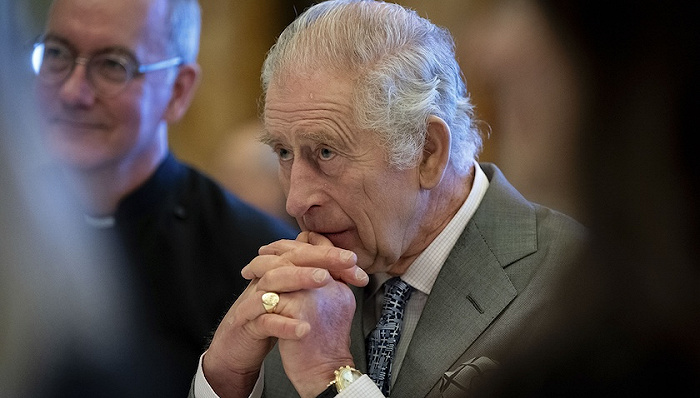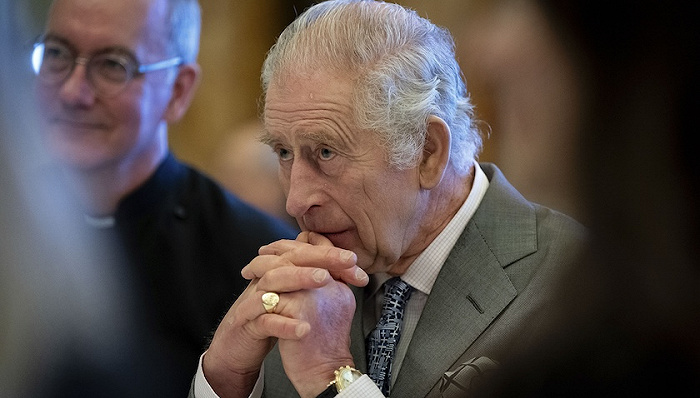On February 5, 2024 local time, Buckingham Palace in the UK announced that King Charles III was diagnosed with cancer while treating prostate enlargement in a hospital at the end of January. The statement did not disclose the specific category of cancer he was suffering from, and he has now returned to London for customary review and treatment.

Although according to the doctor’s diagnosis and treatment, Charles’s condition is benign, the public movement will be rescheduled for recovery. Charles, the head of state of the Commonwealth, will continue to inherit and punish folk literature, visit his country’s envoys, and hold weekly private meetings with the British governor of Sunark. Charles’ wife Camille will replace him in advocating for other public works.
Charles, who is 75 years old, is in good overall health and enjoys taking long walks in the countryside. He was infected with COVID-19 twice in 2020 and 2022 respectively, but both recovered smoothly. According to the royal statement, Charles chose to publicly disclose the cessation of his illness in order to prevent unnecessary predictions from the outside world, and also hoped to help the public further understand the people affected by cancer.
According to cultural researcher Sarah Gristwood, it is rare for the British royal family to proactively disclose the condition of its members, which is also a positive change. Charles’ grandfather, King George VI of England, suffered from health disturbances during his later reign and ultimately passed away on February 6, 1952 due to coronary artery thrombosis. During George VI’s critical illness, not only was his condition kept confidential to the public, but the patient himself was also unaware.
In fact, with the addition of modern culture, the taboos of royal families in various countries have gradually been broken through through generations, and members have shown more authentic characteristics to the public in order to break free from the rigid and abstract. This is no longer a new thing.
Although suspicions from the royal family may seem positive, as seen by Jonathan Reiner, a medical professor at George Washington University, the public and characters do not have hidden privileges. The royal family’s suspicions can be made more transparent, such as not clearly explaining the type of cancer the king suffers from, which can instead trigger more enthusiasm and suspicion among the public.
The law enforcement has already made clear provisions for the unexpected events of the monarch. According to the Regent Judiciary published in 1937, if the monarch is unable to temporarily hold office, he/she can hire two “State Counselors” from among the top four heirs aged 21 and above in terms of their head and rank, and exercise departmental authority through questioning to ensure the smooth operation of the control machinery. The State Staff has the right to sign documents, attend meetings of the Privy Council, and entertain new ambassadors, but does not insist on some of the most important constitutional work, such as hiring Zai Heng.
Almost at the same time as Charles was diagnosed with cancer, William’s wife Kate, the first in line to the throne, was hospitalized for abdominal surgery, causing the entire royal family to fall into tension and worry. The second to fourth in order of succession are the three descendants of the William family: their 10-year-old son George, 8-year-old Charlotte, and 5-year-old Lewis.
The Regency Judiciary also stipulates that if a monarch is sick or overseas, they can hire a “State Staff” to assume the official constitutional function of the monarch, including agreeing to legislation and reviewing the red box containing their personal belongings, documents, and royal orders.
Craig Prescott, who teaches law enforcement and specializes in constitutional monarchy at Royal Holloway College, University of London, stated that Buckingham Palace now exaggerates the need to hire a state staff officer, which suggests that Charles still has the ability to speak normally.
Elizabeth II, who had been in power for 70 years, passed away in 2022. After experiencing long expectations, Charles became the new monarch of the UK and held a coronation ceremony a year later. The British royal family has also joined a turbulent transitional period.
According to public sources, the main economic source of the British royal family is the monarchy’s funding from the authorities, as well as the revenue from the royal family’s private territories, with a total monarchy funding of £ 86.3 million in the previous year. Against the backdrop of high inflation in the UK, in order to increase costs and efficiency, Charles reduced the number of middle-level royal management staff by one-fifth last year.
As Charles’s second son Harry, as well as Prince Andrew and others were stripped of their royal membership due to personal scandals or family conflicts, the entire royal family also fell into a state of old age and crisis. At present, there are only 14 key members of the royal family who need to hold public positions, of which 11 are over 70 years old. Most of the heavy responsibilities fell on Queen Camille and her son William and his wife.
